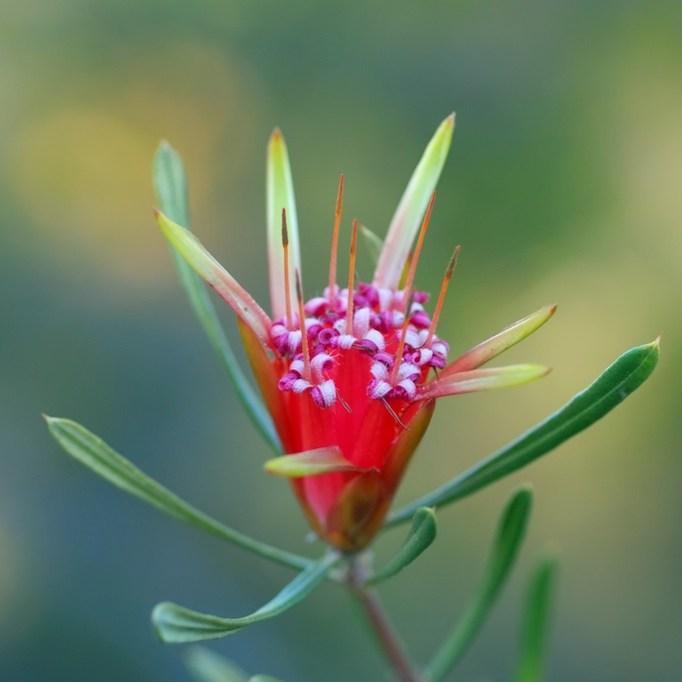
Lambertia Formosa
Mountain Devil
Lambertia formosa is a small to medium sized shrub, averaging 1.5m in height. It has stiff, linear-shaped leaves with a sharp tip. The red, tubular-shaped flowers occur at the ends of the branches. Flowering usually occurs in winter and spring but some flowers are often present at other times of the year. Horned seed capsules develop after flowering and these give rise to the common name of "mountain devil". It can be difficult to establish. It requires moist, well drained soils, preferably of a light texture. It needs some protection from full sun but should not be grown in heavy shade.
Contributed by @stuart59
-
Full sun to partial shade
-
Occasional watering
-
Full Frost Hardy: 5F (-15°C)
-
Free draining
Common name
Mountain Devil
Latin name
Lambertia Formosa
type
Shrub
family
Proteaceae
ph
5.5 - 6.0 Acid - Neutral
Plant & bloom calendar
-
Best time to plant
-
When the plant will bloom
full grown dimensions
 1.50 M
1.50 M
1.50 M
1.50 M
Lambertia Formosa
Lambertia formosa is a small to medium sized shrub, averaging 1.5m in height. It has stiff, linear-shaped leaves with a sharp tip. The red, tubular-shaped flowers occur at the ends of the branches. Flowering usually occurs in winter and spring but some flowers are often present at other times of the year. Horned seed capsules develop after flowering and these give rise to the common name of "mountain devil". It can be difficult to establish. It requires moist, well drained soils, preferably of a light texture. It needs some protection from full sun but should not be grown in heavy shade.
Flowering Season
From Early Winter TO Early Spring
Can flower at random times in the year but most likely to bloom in winter
Propagation by seed
From Early Spring TO Early Spring
Propagation may be carried out from seed which can be slow to germinate. Seeds germinate within 25 to 60 days of sowing.
Planting young plants
From Early Spring TO Early Spring
Do protect newly planted stock from frost until well established in a sunny bed.
Propogation by cuttings
From Mid Autumn TO Late Autumn
Cuttings may also be slow to strike - best results are achieved using hardened, current season's growth. Firm young growth makes the best cutting material for propagation. Fertilisers generally are not needed, but slow release low-phosphorus fertilisers are tolerated.







